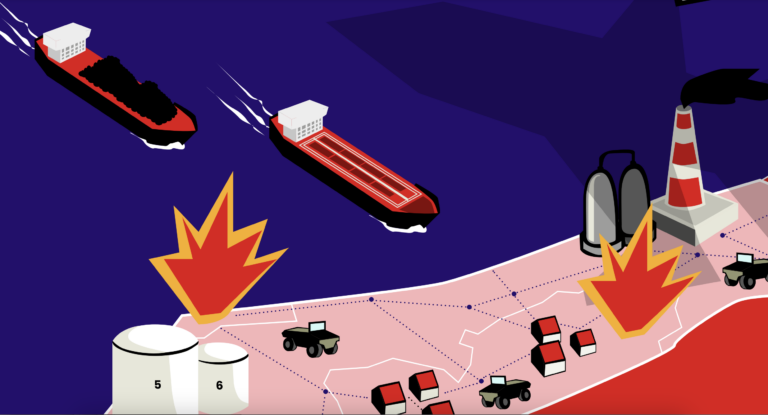09-01-2009 Petrochina Blasted for Indirectly Supporting Human Rights Violations – Matter Network
Over 80 civil society organizations from 25 countries, along with government officials and activist actress Mia Farrow, have filed a complaint with the United Nations charging PetroChina, the publicly traded arm of China National Petroleum Company (CNPC), with indirectly supporting the Sudan regime that is responsible for the human rights crisis in Darfur.
The complainants, who are coordinated by Investors Against Genocide (IAG) in collaboration with the Centre for Research on Multinational Corporations (SOMO), are issuing a double-barreled challenge. They’re calling out PetroChina for not using its power and influence to persuade the Khartoum government to abandon its oft-demonstrated indifference to human rights, and they’re also tasking the United Nations with enforcing the language in its Global Compact, which PetroChina has signed.
With over 500 signatories, the Global Compact is the world’s largest and best-known voluntary corporate social responsibility initiative. Its first principle states that businesses should support and respect the protection of internationally proclaimed human rights, while its second principle requires that businesses ensure they are not complicit in human rights abuses. The complaint charges PetroChina with violating both these principles.
If a Global Compact signatory behaves in ways that are inconsistent with its commitment, the UN has an affirmative duty to do-list the organization. This is what the IAG coalition is asking the organization to do. Says IAG Chairperson Eric Cohen, "If a company seeks legitimacy by joining the Global Compact, it should be required to have a genuine commitment. If the Compact’s principles aren’t enforced, the UN risks making the Global Compact an international joke."
These are two mighty big meals that the IAG consortium is trying to digest. For all practical purposes, PetroChina is an arm of the Chinese government, and we all know how receptive that regime has been to chastisement by the international community. As for the UN, since its earliest days it’s been characterized by the gaping chasm between its aspirations and its actions. To date this pattern has applied to the Global Compact as well: the UN has never de-listed an organization for substantive (as distinguished from procedural) reasons. In one fell swoop, the IAG group is asking the Chinese government, as fronted by PetroChina, to change its evil ways, and the UN to grow some teeth.
IAG’s Eric Cohen is cautiously optimistic about the chances for success. "We’re not asking PetroChina to threaten to withdraw from Sudan if the oil companies’ demands aren’t met," he says. "We’re only asking them to step up to their responsibility to be an ethically good business partner."
As for the likelihood of getting the UN to enforce its integrity measures, "I believe we can get the people in charge of the Global Compact to help the program actually be the agent for change it aspires to be," Cohen says. "The world is on the move. Maybe it’s ready for the changes we want to see."
Related news
-
 The hidden human costs linked to global supply chains in ChinaPosted in category:News
The hidden human costs linked to global supply chains in ChinaPosted in category:News Joshua RosenzweigPublished on:
Joshua RosenzweigPublished on: -
 The power to extract value from the value chainPosted in category:Long read
The power to extract value from the value chainPosted in category:Long read Rodrigo FernandezPublished on:
Rodrigo FernandezPublished on: -
Powering injustice Published on:
 Lydia de LeeuwPosted in category:Publication
Lydia de LeeuwPosted in category:Publication Lydia de Leeuw
Lydia de Leeuw

